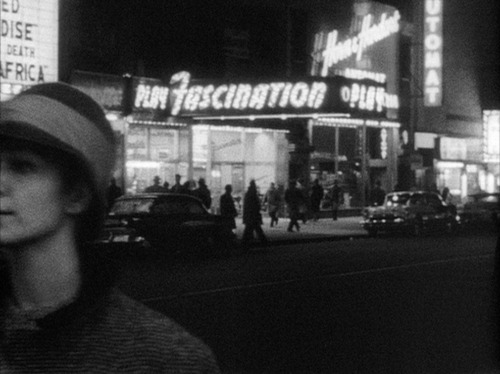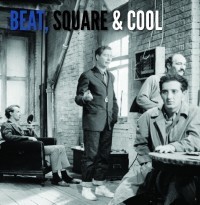
The phenomenon of “your next box set”, an evening in with a DVD set of typically some quintessentially Scandinavian crime epic noir for company, a luxuriant soaking in uninterrupted subtitled emblazoned grisly goings-on in chilly climes, and fodder for the next vaguely passable social gathering is now well established in media land. To wit: the very words “your next” assuming it’s a regular pastime akin to gardening, happily flagged up in a regular spot in The Guardian. So clearly, instead of spending an evening down the pub, ruminating about the next must-attend piece of performance art, shopping for trainers, or dressing up for Halloween, it’s the thing to do. And why not while you’re at it, unless you actually prefer to go to a real-life cinema, that is, or opt for being really old fashioned and actually watch TV episode-by-episode when they’re actually on. Somehow, though, even if it is appealing with a bit of forward planning, the “all you can eat” all-of-the-time aspect of the box set-as-evening-entertainment is a little too good to be true, and it strikes me as though you need to be a bit of a glutton for punishment to really get it, chaining yourself to the TV no less, in the hope that the plot gets somewhere by the end although you’re bracing yourself just on the off chance that there’s some ending worth waiting for and not the kind, beloved of the arthouse, when the action grinds to a halt or, the big come on, stops… as if mid-sentence making sure a new series isn’t out of the question.
By the yardstick of the box set evening a four-hour opera is for softies although the path to the fridge is that bit more direct from the comfort of your sofa. But what about the “CD box set” night in? An outlandish concept you might say. Who in their right mind would listen to hours and hours of music, it’s fair to speculate, with only a few pictures of the artwork for visual stimulus, and nothing to stare at but the wall, should arty pics of image-conscious bands scowling begin to suddenly pall?
Well, shockingly, an evening in with a box set could work OK with the help of a roaring fire very possibly, a friendly hound by the hearth, hearty fare, suitable beverages, and a goodly mix of female company, with the hi-fi tinkling at just the right volume in the background.
And for the first running of this newly invented concept evening? Step forward Beat, Square & Cool, the second box set from boutique reissue label Moochin’ About. Last year the label put out the critically acclaimed Jazz on Film… Film Noir box set, and label founders record distribution sales executive Jason Lee Lazell and jazz writer Selwyn Harris have followed suit with a batch of films that retains the general concept, recognising the need for good mastering, a rarity in the world of public domain reissues where releases are often copied from less than pristine sources, the provision of detailed notes, again as rare as hen’s teeth, and plenty of pictures including original poster artwork reproduced along with the five CDs, each disc covering extracts from sometimes two films. So there’s The Wild One from 1953 and Crime in the Streets from three years later on CD1; I Want to Live! from 1958 given a whole disc; Marcel Carné’s Les Tricheurs from the same year bunking up with Paris Blues from three years later on CD3; while the fourth CD has The Subterraneans from 1960, with music by André Previn; and finally Shadows from 1959, and The Connection, from two years later, are on the last CD.
A foreword from Jazzwise editor Jon Newey sets the scene: “Out of the twilight murk of post-war film noir emerged a new strand of shadowy cinematic concepts,” and then Selwyn Harris, who writes the regular Jazz on Film column in Jazzwise, in his introduction charts how the films in question emerged from those shadows, firstly marking the teenage revolution in the making via films such as The Wild One while jazz was similarly in flux with cinema trying to encapsulate both the bohemianism of the jazz community’s take on the world they find themselves unwillingly part of, and the transformation of attitudes to music and society in The Subterraneans, as well as in Paris Blues, with music by Duke Ellington, and French film Les Tricheurs.
Harris finds the society of the day’s racial taboos are shied away from in some of these films, particularly Paris Blues and The Subterraneans but points to the growing confidence of independent film making in the United States with figures such as director John Cassavetes who in Shadows with wonderful music by Charles Mingus and an semi-improvised ethos in the film making process Harris contends allowed for greater complexity and representation of issues that few before Cassavetes would have been capable of tackling with the same degree of commitment.
While the music for The Connection is better known, the inclusion of Shadows plugs a gap in many people’s record collections, and the notes about this important though cultish film are good on details about the Mingus octet and the story of how the film came to be made.
It’s not surprising to discover where Harris’ heart lies in the selections here (with the clue in the booklet cover image bled on to the back of Cassavetes’ hands in the air, with Shafi Hadi emerging on the far left on the back cover recording the score for the film). And it’s the later noticeably more modern material that the main interest in this superlative box set lies. These Moochin’ About releases take on the marker for film and jazz set down by the quality of numerous Proper Box series, although the design is that much more appealing and the notes so much more readable and interesting.
As full migration to digital threatens to mothball CDs at some point in the near future, detailed readable information and properly presented audio that is worth its place on your shelf for frequent reference particularly in the realms of reissues is so very valuable as it won’t be around for ever in current formats and who knows what online solutions will be found as the buccaneering spirit of digital format-finding gathers pace in the years to come. It’s extraordinary and short sighted, though, that record labels concentrate on putting out poor quality digital music as downloads (not even reissuing so much on CD these days especially if it’s owned by the majors).
So the age of “your next box set” may yet take on a different dimension. Breathe life into an old format by taking it home for an evening in and not a Wallander in sight. The 300 minutes of music on this set would make a very full and entertaining evening no matter how beat, square or cool you happen to be.
Stephen Graham
Currently available